A Lenten Reflection on Psalm 32: The Weight of Guilt
By Michael Roop
This blog is part of a series reflecting on Psalm 32. Read the rest of the series here.
Last week, David proclaimed “blessedness” over those who face up to the depravity and hopelessness of their situation - that they are adulterous and defiled failures before a holy God - and find forgiveness, covering, and the removal of all charges.
Why is that such a blessed state? Wouldn’t it be easier to simply ignore or redefine the problem? Wouldn’t it be easier to blame societies or systems? Aren’t my parents more to blame than me? Or my circumstances? Or what I’ve endured? Why is it better to face, own, and confess my sinful state?
To answer that question, David reflects on his own experience of unconfessed sin in the next two verses of Psalm 32.
3 For when I kept silent, my bones wasted away
through my groaning all day long.
4 For day and night your hand was heavy upon me;
my strength was dried up as by the heat of summer. Selah
Anytime you see the word “for” in Scripture, unless it’s the preposition, it is introducing an answer to the question, “Why?” Why is it blessed to own up to your sinfulness rather than deceive yourself through attempts to ignore it or shift blame for it onto others?
The answer is that unconfessed sin won’t allow itself to be ignored. There is a devastating, gnawing, clutching, scraping, and pressing nature to the experience of unconfessed sin. It weighs us down, eats at our bones, and calls out to us in the stillness of the night. Maybe that’s why we can’t fall asleep without our screens anymore. In the silence, a voice we’ve been repressing all throughout the day softly reemerges with the damning message: You’re not enough.
Neither can the guilt and shame be relieved by finding someone else to blame. Just ask Adam, who blamed Eve AND God for his sin of eating from the forbidden tree. Blaming others didn’t provide any relief from the burden he carried. He was still covered, still hiding, still ashamed of his nakedness before his wife, much less his holy Creator. In other words, his bones were still wasting away under the weight of his sin.
Whichever of those two paths David walked, the absence of confession led to an unbearable weight. It’s a weight many of us know. For most of us, these lines don’t reveal a foreign experience, but give words to what so many of us have walked through or are walking through right now.
So what do we do with the bone-wasting, groan-inducing, strength-dissolving weight of guilt? Well, David had one last attempt, one last path to walk.
This blog is part of a series reflecting on Psalm 32. Read the rest of the series here.
Last week, David proclaimed “blessedness” over those who face up to the depravity and hopelessness of their situation - that they are adulterous and defiled failures before a holy God - and find forgiveness, covering, and the removal of all charges.
Why is that such a blessed state? Wouldn’t it be easier to simply ignore or redefine the problem? Wouldn’t it be easier to blame societies or systems? Aren’t my parents more to blame than me? Or my circumstances? Or what I’ve endured? Why is it better to face, own, and confess my sinful state?
To answer that question, David reflects on his own experience of unconfessed sin in the next two verses of Psalm 32.
3 For when I kept silent, my bones wasted away
through my groaning all day long.
4 For day and night your hand was heavy upon me;
my strength was dried up as by the heat of summer. Selah
Anytime you see the word “for” in Scripture, unless it’s the preposition, it is introducing an answer to the question, “Why?” Why is it blessed to own up to your sinfulness rather than deceive yourself through attempts to ignore it or shift blame for it onto others?
The answer is that unconfessed sin won’t allow itself to be ignored. There is a devastating, gnawing, clutching, scraping, and pressing nature to the experience of unconfessed sin. It weighs us down, eats at our bones, and calls out to us in the stillness of the night. Maybe that’s why we can’t fall asleep without our screens anymore. In the silence, a voice we’ve been repressing all throughout the day softly reemerges with the damning message: You’re not enough.
Neither can the guilt and shame be relieved by finding someone else to blame. Just ask Adam, who blamed Eve AND God for his sin of eating from the forbidden tree. Blaming others didn’t provide any relief from the burden he carried. He was still covered, still hiding, still ashamed of his nakedness before his wife, much less his holy Creator. In other words, his bones were still wasting away under the weight of his sin.
Whichever of those two paths David walked, the absence of confession led to an unbearable weight. It’s a weight many of us know. For most of us, these lines don’t reveal a foreign experience, but give words to what so many of us have walked through or are walking through right now.
So what do we do with the bone-wasting, groan-inducing, strength-dissolving weight of guilt? Well, David had one last attempt, one last path to walk.
Posted in lentenreflection2023
